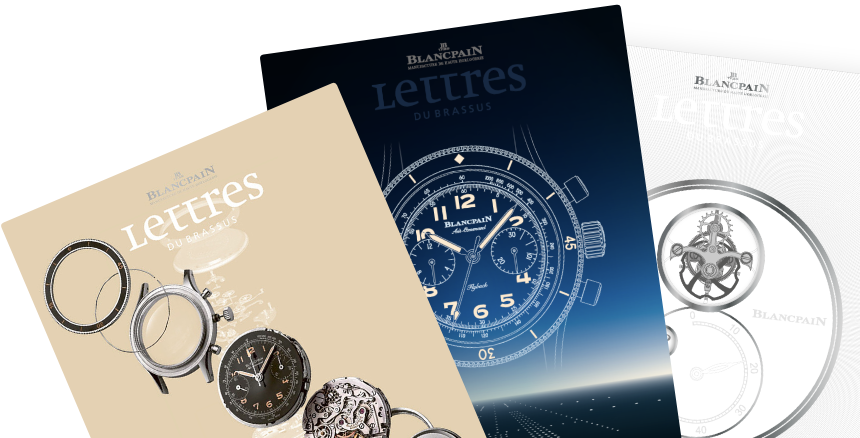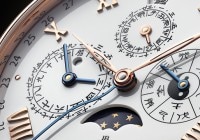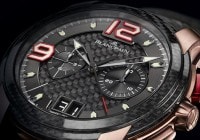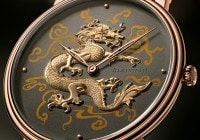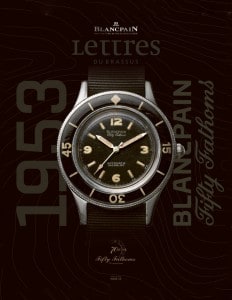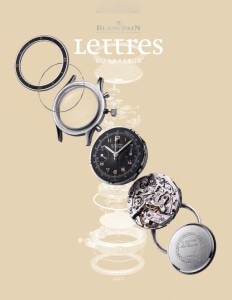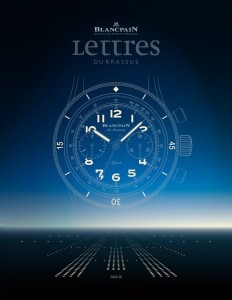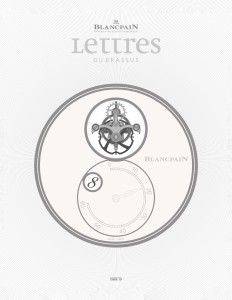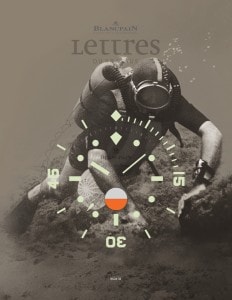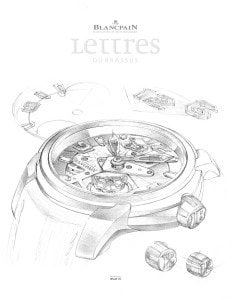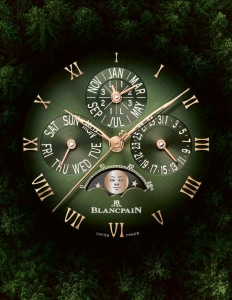
Search in Issues
Chapters
Chapter 6
DAMASQUINAGE
Blancpain brings an ancient art form to the dial

LITTLE HAS CHANGED IN THIS ART FORM SINCE ITS APPEARANCE IN THE 16TH CENTURY BC.
With its origins in China, later propagating to ancient Damascus, and from there to Persia and India, thence to Toledo, Spain, the decorative art of damasquinage (alternately translated into English as “damascening” or “damaskeening”) lays claim to an exotic heritage. Further enhancing its exotic reputation are the objects of war, swords and coats of armor, which have been among the principal beneficiaries of the technique.
Blancpain now has brought this storied hand craft to the watch dial.
Little has changed since the emergence of this art form working on bronze objects in the 16th century BC. The surface to be decorated is first carved with the design to form troughs. Thereafter rolls of soft metal, overwhelmingly a precious metal such as gold or silver, are hammered into the troughs and the top surface thereafter polished flat. The key principle is that the precious metal decoration is held in place by the metal surface into which it has been inserted and hammered. No glue, adhesive, or other form of attachment is used. Practiced today the handwork is much as it was originally, with painstaking carving and artisanal hammering and polishing.





BLANCPAIN’S DAMASQUINAGE COLLECTION OFFERS A RANGE OF DIALS EMPLOYING THIS HAND CRAFT.
Blancpain’s Damasquinage Collection offers a range of dials employing this hand craft. The dials themselves are fashioned from Grade 2 titanium. The Dragon motif is utterly traditional in its realization. The design is first hand carved into the surface and 24 carat gold thereafter pounded into the chiseled troughs. Polished flat therefollowing, the design takes on a profound but refined radiance unequalled by any other decorative technique.
UNIQUE BESPOKE PIECES ARE AN AVAILABLE OPTION FOR COLLECTORS.
There is a second variation within the Damasquinage Collection, unique pieces. The initial design is that of a Chinese countryside. Other scenes will follow each a unique “series of one”. Included will be the possibility to order bespoke designs with an image of the owner’s choice. These unique pieces offer an expanded repertoire of damasquinage. Still remaining faithful to the dictates that the precious metal décor be held in place by the metal surface upon which it is placed, carved three dimensional design elements may be added. For example in the Chinese coutryside piece, the bridge, boat and tree have been first hand carved in 24 carat gold. After carving, the base of each of these elements is inserted into the titanium surface of the dial and the surrounding metal is gently hammered back in place so as to secure it. The result is a damasquinage design with dimensionality.
All of the pieces in the Damasquinage Collection are housed in 45 mm rose gold cases. Blancpain’s caliber 15 manual wind movement, reserved for use in only the most special timepieces, powers the watch.


Other issues
Don't miss the latest issue
Sign Up for New Releases